Teaching Russian online from Texas? Da!

Arguably, in this new COVID-19 reality, our saving grace has been modern technology, giving us a coping mechanism, a fallback, and a way to stay connected when physical distance is the order of the day. So, since mid-March, the University of Texas at Austin, one of the largest research institutions with the second most endowments in the U.S., partnered with Zoom and beamed 9,076 face-to-face classes into cyberspace (leaving only critical COVID-19 labs open).
On day 1 alone, 5.2 million meeting minutes were accumulated by 3 p.m. with more than 157,000 participants. But the one UT course that didn’t have to adapt was: Russian Online taught by Dr. Heather Rice. Unlike most online language classes, Dr. Rice’s course is a synchronous, highly interactive program with an amazing graphic interface developed by artists and animators at UT’s Liberal Arts Instructional Technology Services (LAITS).
Believe me, you won’t find a more engaging online Russian course anywhere in the world. So, I paid a virtual visit to Dr. Rice to learn more about this well-kept Texas secret.

Dr. Rice, does one really need to learn the language to fully understand and appreciate Russian culture? Or is there something I’d be missing?
I always tell my students that Russian is a very passive, ‘I’m not to blame for my feelings’ — type language. (U.S. American) English tends to require that we often use ‘I’ and ‘my’ when we speak. Americans are seen as very independent (to a fault) and egocentric. We say, “I want, I think, I feel...” And we always qualify everything as ‘mine’ - my mom, my room, my friend - and these bits are often ignored in Russian.
When American students first start speaking Russian, they invariably translate directly from English into Russian and they overuse ‘Я’ (“I”) and ‘мой’ (“my”). Russian just isn’t structured the same way — you say “Мне хочется, мне понадобится, мне приходится…” this kind of passive way of expressing what you want, need, or have to do. I joke that Russian speakers accept no responsibility for their feelings. Feelings just are — they show up and Russian speakers recognize them but do not claim ownership of them the way we do. And this is reflected in Russian culture, in general.
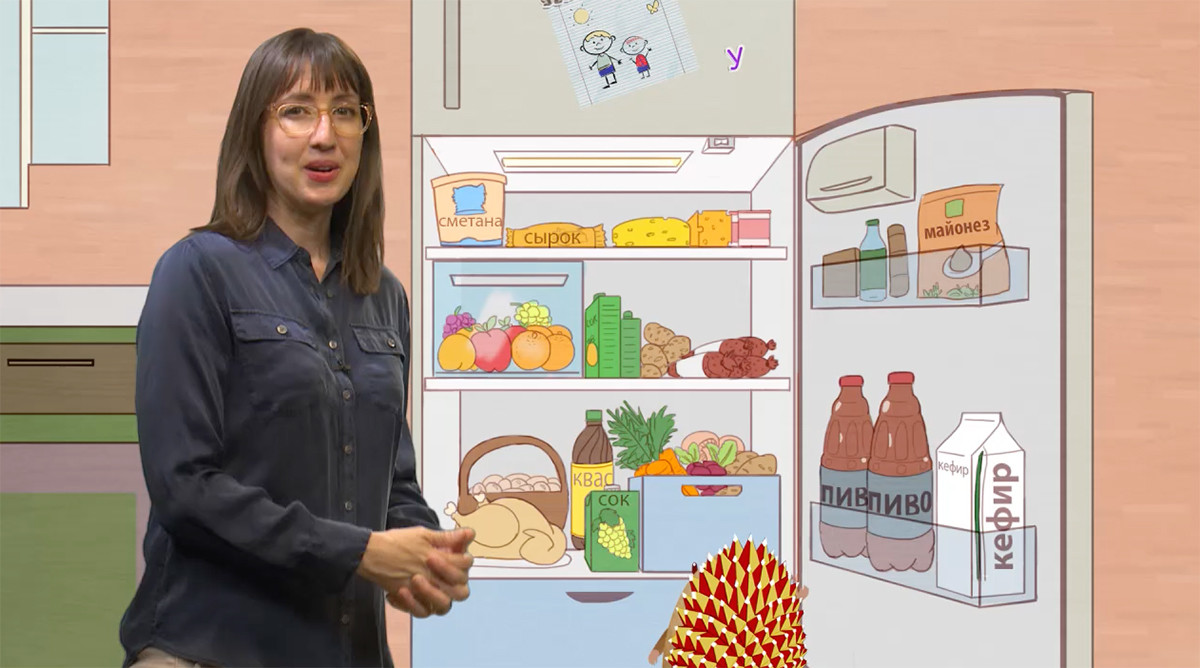
So when and why did ‘Russia Online’ start, and what’s your average enrollment?
It was the job I was offered when I finished my PhD in 2015. The Chair of the Slavic department, Dr. Mary Neuburger, saw a grant opportunity for us to develop an online course, and she needed someone to do it, which is where I came in.
Then, the Liberal Arts Instructional Technology Services, who produces most of the online courses for UT, worked closely with me over the next three years to develop our 3-semester online Russian course. This meant I had access to a full video production studio, audio engineers, and graphic designers. I came up with the course content, and they brought it all to life. I would not have wanted to attempt this endeavor without them.
The first semester course of the 3-semester sequence launched in the fall of 2017, so it’s been running for a full three years. We now offer each of the three courses both fall and spring semesters, so students can sign up anytime — they don't have to wait until fall to start and they can even pause between semesters if they need.
Our enrollments for RUS 406, the first semester, are usually between 20-30, regardless of [spring or fall] semester. Then, there's invariably attrition from the first to second semesters and this is for any number of reasons.
One really interesting thing that we’re seeing right now for Russian online is that about one-third of our students are enrolling in Russian because they want to.
Who are the young Americans who decide to learn Russian these days? What motivates them?
When I first started learning Russian, it was right after the fall of the Soviet Union, so people were really interested in Russian then — we could finally go to Russia!
And when I started teaching Russian there were students interested in business and international development. Also, then and now, there are students with family or friends who speak Russian. Then, there are the linguists and language enthusiasts who love hard languages and just love a challenge. Additionally, these days, there are those interested in cyber-security.
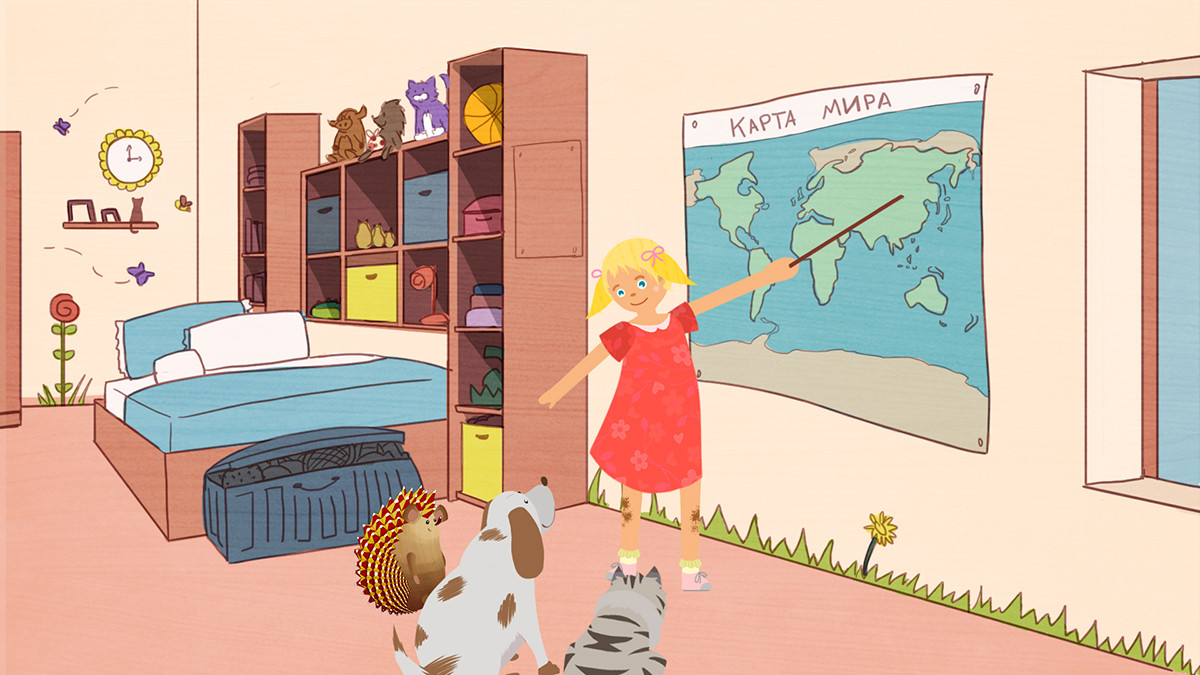
Do you have any students who are not at UT?
Of those who enroll the majority are UT students, but we do get a small number that enroll through UEX (extension), because this class is open to anybody [worldwide], regardless if they are enrolled in a university or not. So, I’ve had people who enroll from Hawaii, from France, and a few others across the United States. I would love to have more but we just don’t have the visibility yet…
There’s a lot of beautiful artwork in your course, but there’s also “mythology”. Could you elaborate?
When I first started with this project, the director of LAITS studios, Mike Heidenreich, suggested that we have a theme to anchor the students to the course (all three semesters). At first, I said no, but then the more I thought about it, I started to realize he was right: we need something.
Russians love forest animals. And the hedgehog is a really popular forest animal because it’s cute and very soft. It’s like the nice version of a porcupine and we don’t have experience with [this animal]… In Texas, we don’t really know what a hedgehog is.
So I named him Oleg because in that four-letter word, you get all the main features of Russian phonology: you have vowel reduction in the first ‘o’ because it’s not stressed, then you have the palatalized vowel, and then you have end of word voiceless consonant in the ‘g’. So, if you can pronounce Oleg successfully you’ve gotten somewhere.
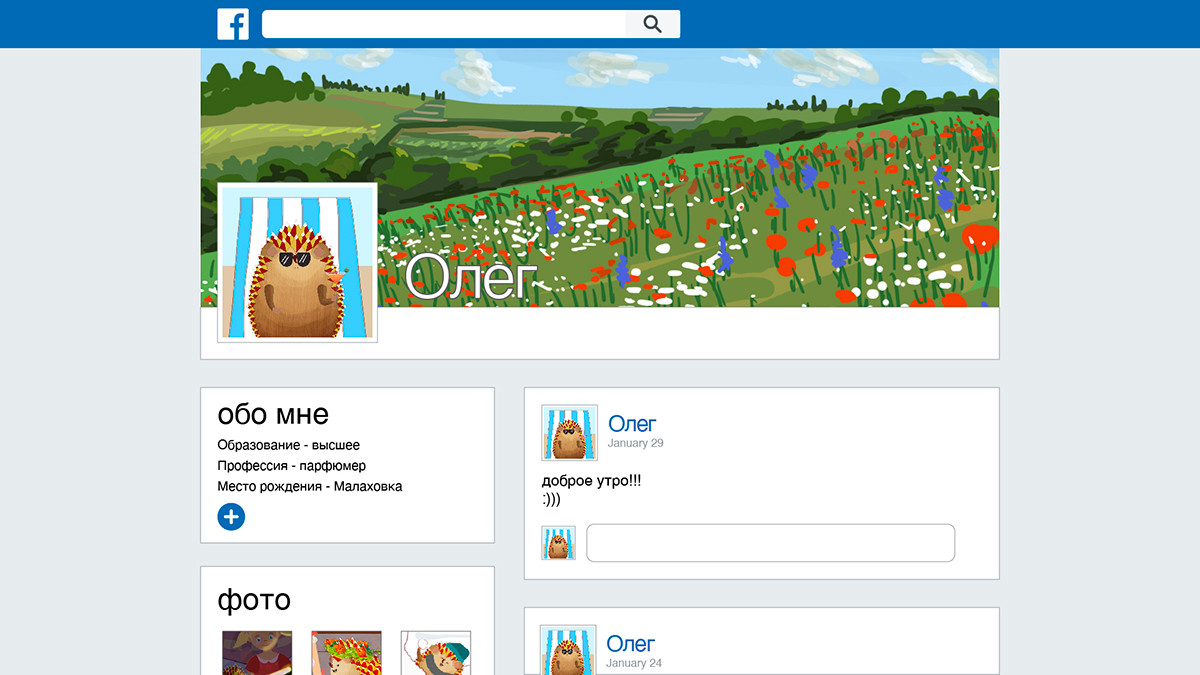
(To see some of the artwork done by LAITS and the process of the creation of characters like Oleg, check out the blog of one of the student technology assistants.)
Now, the burning question: how has COVID-19 affected your class and your students’ “classroom” experience?
When I found out everyone would be going online, my first thought was that it wouldn’t affect my classes at all, but the reality is that although the format and delivery of our online classes have not changed, the world definitely has.
Some students have had to move homes and so their environments have changed. The way they work has potentially changed — maybe their space, their roommates, their internet reliability. I've just tried to keep communication very open with them. We’ve had to slow things down here and there to allow everyone to readjust to their situation, but we're not having to relearn classroom dynamics or anything like that.

What are your thoughts on online language education? Can it fully or at least mostly replace traditional classroom learning or intensive ‘boot camps’ or even study abroad courses?
Firstly, I really went into this Russian online language learning very pessimistic. I thought, “It can’t be done.” Forget the obvious challenge of trying to teach Cyrillic cursive online, I did not think you could successfully teach/learn any language online, let alone Russian. But I said let’s just roll with it and make the best of it. So, I dove completely into it and met the task head-on.
Anyway, key to this was letting go of the face-to-face classroom and not trying to replicate the in-person experience in the online format… I took a step back and thought about the overall goals of Russian language instruction and then tried to figure out how to meet these goals with the online toolbox. We needed a way for students to get lots of exposure to written and spoken Russian. We needed engaging materials — for students to buy into the course. And so I started there… It took 3 years and we’re still tweaking things, but that’s the beauty of it being an online course.

Please note: I do not advocate replacing the face-to-face classroom. I think as long as we’re able, we should allow a choice in how we receive instruction — online or in person. Also, study abroad just cannot be replaced. I don’t think you can ever replace actually being physically immersed in Russian language and culture.
UT, like many universities, has announced that all study abroad programs and trips are canceled through the end of Fall 2020. This could extend even longer depending on how the virus plays out. What changes are you making to address this?
I can’t speak with any authority on what the official response to this will ultimately look like, but I can say that before any of this happened, I started working with the Higher School of Economics in Moscow on virtual exchanges between the online students and one of their student teachers was looking for opportunities to do her practicum (she needed to teach Russian to English speakers) and reached out to all the teachers here at UT. It was too short of notice for us to bring her here to Austin, but I said, “I teach online, would this kind of thing work for your directors?” And it did.
Eventually it evolved from her just sitting in her room meeting with a student one on one in Zoom for fifteen minutes per week to virtual outings in the city… Once, she had to move locations, leave her room, and go outside. It was 9 hours ahead and it was snowy and dark in Moscow. And she puts on this gigantic coat with a hood, and she just totally transforms from this college girl in a T-shirt with her hair pulled back, and now, she’s got this red huge parka, and she walks outside into the streets of Moscow while talking to us. And the students were just transfixed. They’re seeing real-time Moscow, and so we kind of took it from there.
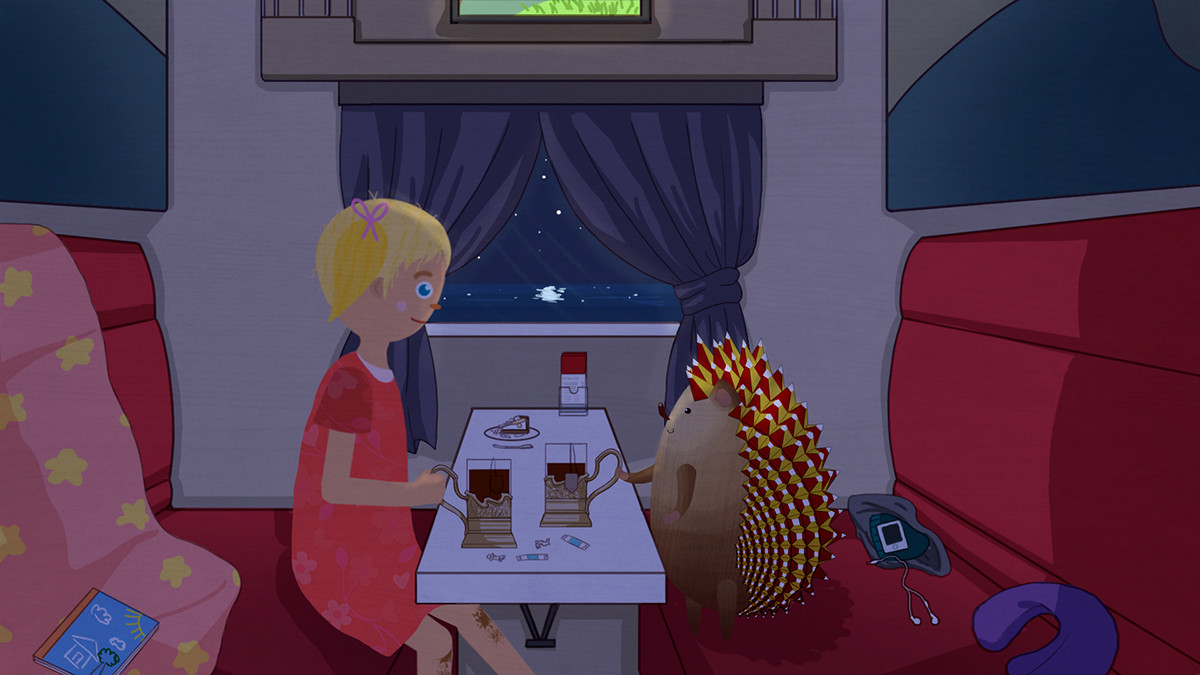
We have started to put together a plan to incorporate regular virtual exchanges between more student teachers at HSE and our online students. Regardless of how travel restrictions play out, we hope to make virtual experiential learning a permanent part of the online curriculum because the value of this in early language education is just immeasurable.
I hope restrictions don’t last too long. I would be very sad if our students couldn’t travel to Russia and experience the language and culture first-hand. There is just no substitute for being in the country, fully surrounded by the sights, sounds, smells (!), and tastes of Russia. In the meantime, I will continue to do my part as an instructor online to keep students interested and engaged in Russian language and culture until they can get there on their own.
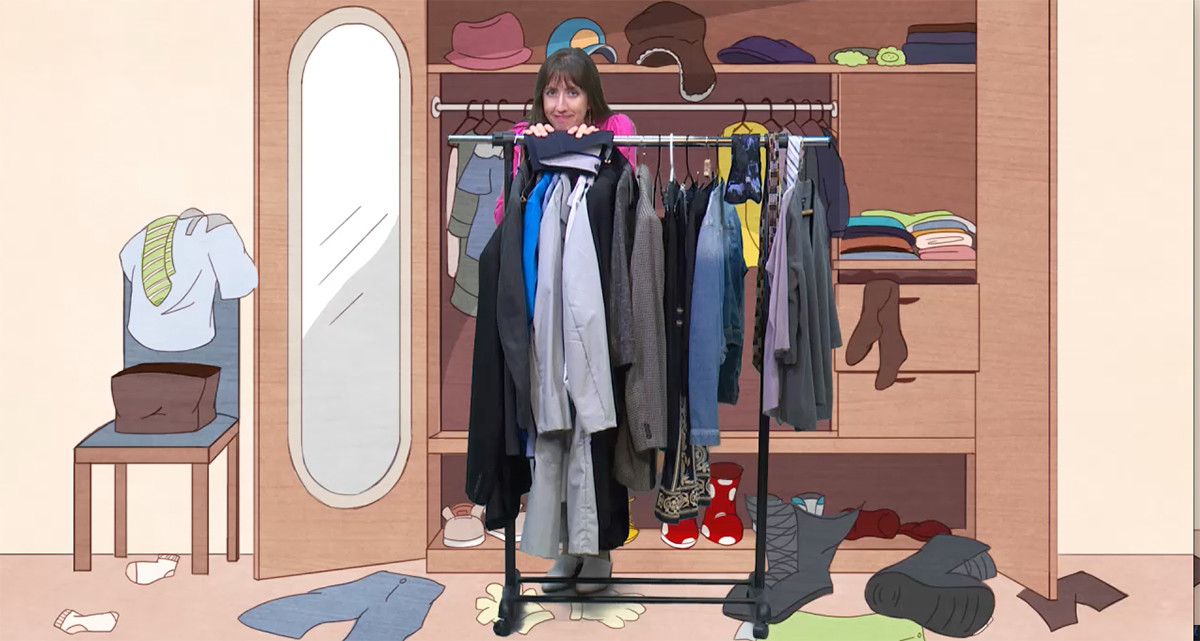
To hear a recorded conversation with Dr. Rice and one of her former students, check out this podcast episode from UT Austin.
If using any of Russia Beyond's content, partly or in full, always provide an active hyperlink to the original material.
Subscribe
to our newsletter!
Get the week's best stories straight to your inbox